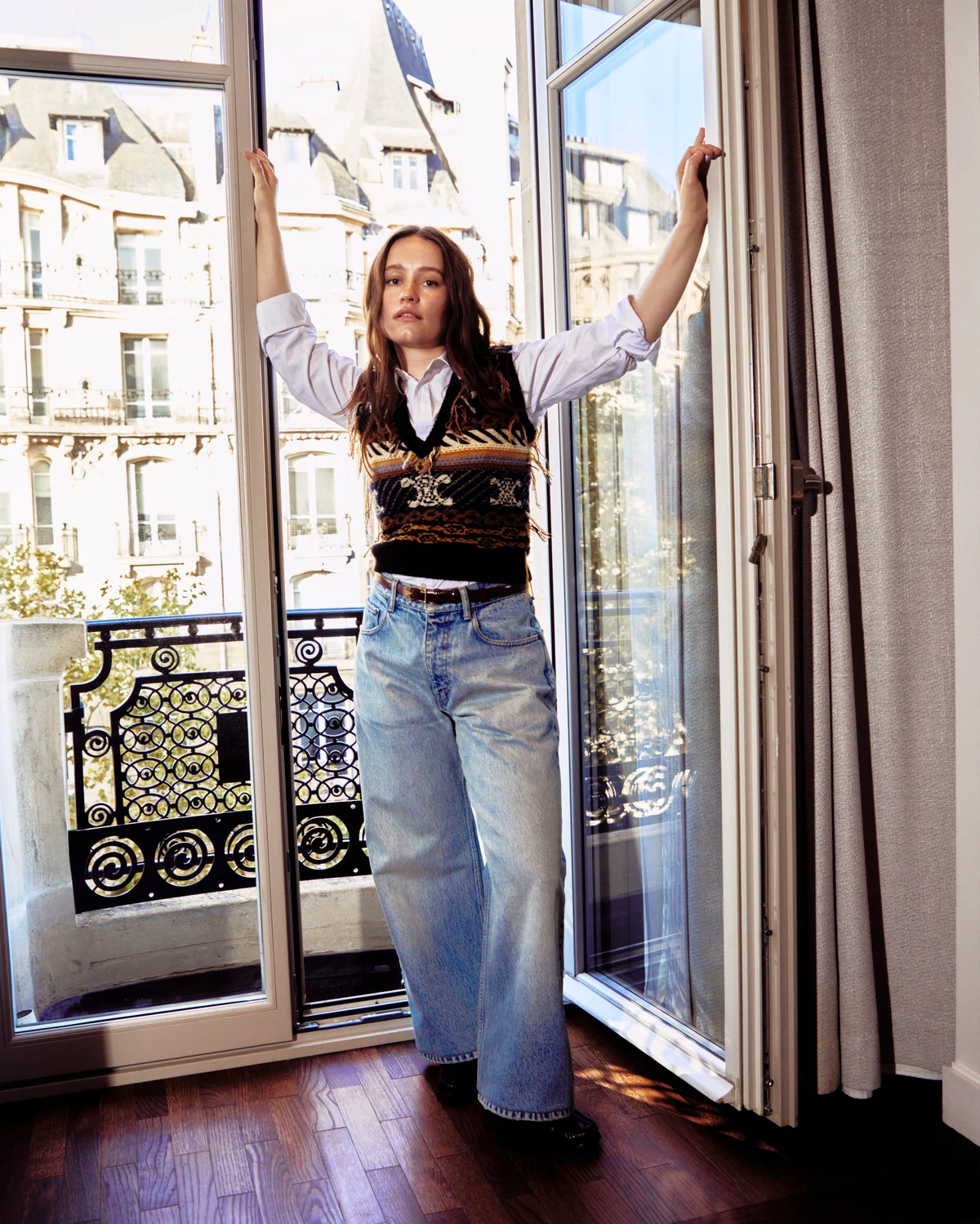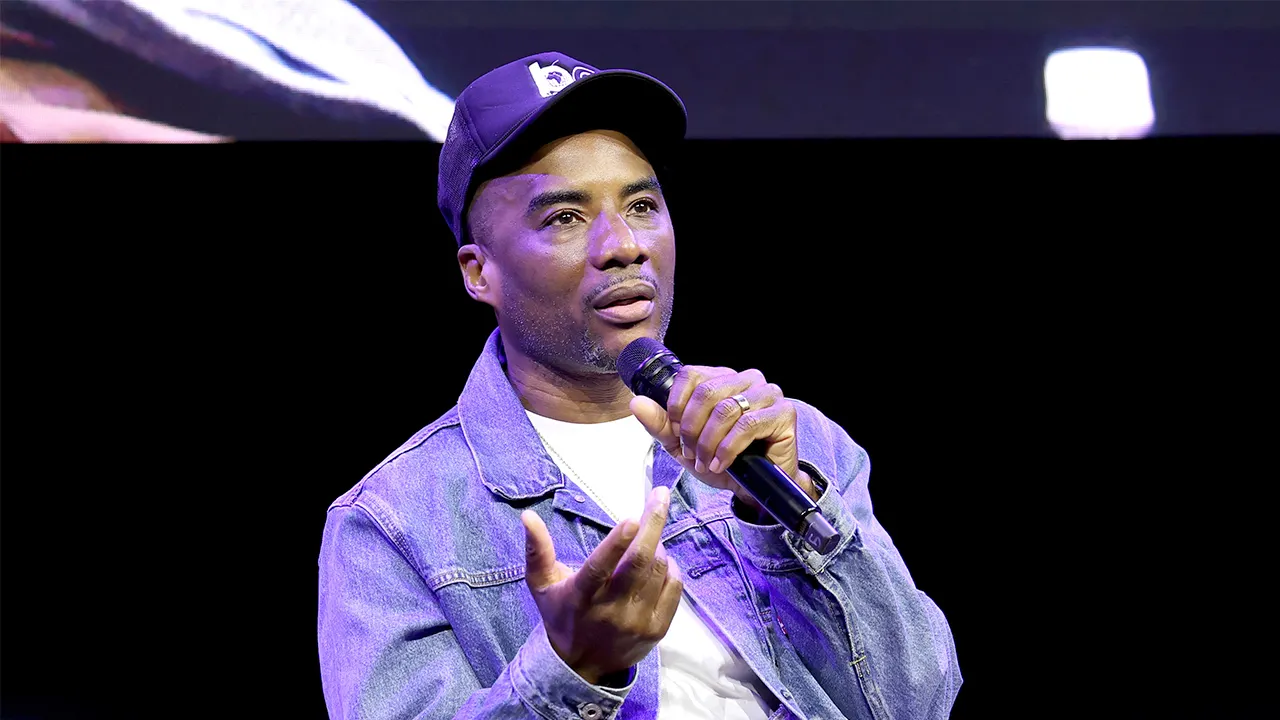Copyright standard

A drizzly Sunday in King’s Cross, the final day of the London Film Festival. It’s two hours until the closing night gala at the Royal Festival Hall, a screening of the elaborately costumed medieval fairytale satire 100 Nights of Hero, and here in musician Sigrid’s hotel room the vibe is exploding suitcases and movie premiere glitterbomb. Sigrid — rushing after a delayed flight from her home in Oslo — is huddled in her bathroom at The Standard with her hair, make-up and styling team. The red carpet waits for no one, even if the star is only attending for fun, an amuse-bouche before the serious promotional business of album release week kicks in. The dress code for tonight’s event is, as the invitation has it, “smart” — with the caveat of “we welcome all interpretations of smart”. “Oops!” says Sigrid, beaming, as we survey the ruffled red skirt by Danish designer Cecilie Bahnsen laid out on the bed. “I hope they think that’s smart. I do. I also think it’s a bit on-theme with the extra big skirt.” The matching blouse, however? Ditched for being on the see-through side of revealing. Sigrid — as her PR puts it, “never far from a T-shirt” — will instead wear a plain black top. In an era of super-sexualised pop “girlies”, the 29-year-old is an outlier for twinning pop-forward tunes (Strangers, Sucker Punch) with what we might call a fashion-backward look. Jeans and a T-shirt have, brilliantly and consistently, been her standard look across the decade since she released her debut single, Don’t Kill My Vibe, at 20. When its UK success helped her win the BBC’s Sound of 2018 poll, she was the second-youngest winner of the award, beaten only by Adele. As this down-to-earth, brightly engaging star says of her default style setting: “In practicality, it’s the Norwegian in me. You dress for the weather. You know it’s going to be terrible, so jeans and T-shirt has been practical. And it’s one less thing to think about.” Right now, though, it’s glam o’clock, the pair of Louboutins indicating that Sigrid is very much going to the ball. “If I have fun with it, it’s really enjoyable,” she says of her tip-toe trips into pop music’s frothier frontiers. Last month she “did” Paris Fashion Week for the first time, joining Uma Thurman and Natasha Lyonne on the front row. “It’s different when I’m singing,” she says. “I’m gonna have a good time tonight, so I can wear heels. I couldn’t do that on stage.” Sigrid’s third album, There’s Always More That I Could Say, has been trailed by impeccably catchy singles Jellyfish (“a full-on a friendship song, about the giddiness of feeling safe with someone”), Fort Knox (with a live video shot during her performance at this summer’s Latitude festival) and Two Years (a break-up song from the perspective of someone who chased her from “Oslo to Tokyo”— written, method-style, in Tokyo). Now, the full album opens with the sugar-rush dance pop of I’ll Always Be Your Girl. Its first lyrics: “Lads lads lads, and he’s always been it, football is religion but don’t know how to kick.” That sounds, I say, as if Sigrid has properly immersed herself in British culture. Or, a British person. “British culture, yeah!” she replies, now hurriedly eating a grains-and-halloumi bowl. “I’ve been in the UK for 10 years,” she says. That period began before her debut single, with her writing songs in London, five days a week, for an entire year, commuting back and forth at weekends to her then-home in Bergen. Even now, “I’m here every other week. So yeah, naturally, a little British inspiration there. I love that song. It was written in Tooting Broadway!” Sigrid nonetheless remains plugged into life at home. She’s well aware that, at last month’s general election, Norway’s Labour Party narrowly held onto power, despite a doubling in the vote of the populist, Right-wing Progress Party. “They’re like Reform,” she says. “It is very similar to the UK. But this election was a lot about taxes. That engaged a lot of votes from young guys, 18 to 23-ish. Which was surreal. But I was doing a podcast in Norway with these two young guys. One of them said: ‘I don’t like that the minute young people start to get involved in politics… we make fun of them for caring about taxes.’ “So it is complex,” she continues. “If the question is, ‘Do I want to write about it?’ Then the answer is, ‘Yes, a lot’ … But how to put that into a pop song in three minutes?” she muses, eyes wide. “Difficult! I studied comparative politics for only three weeks. I’m not the one to ask geopolitical questions. But I do want to use my voice. It’s a fine balance.” If anyone has the creative chops, it’s Sigrid. As that London apprenticeship attests, she’s long been involved in every aspect of her music, from writing to singing to arranging to recording. But her new album is the first one on which she’s credited as co-producer. Why has it taken so long? “Uh, you tell me,” she replies, smiling. “But it’s not like I’ve co-produced all my songs in my career. I would never take credit for something that I don’t think I’ve been a part of.” Still, she’s keenly aware of the irony that her breakthrough song was inspired by a patronising early producer (“You shot me down, you like to control, you speak to me like I’m a child… you feel threatened by me…”). “It is hard to take that rightful place in the studio when you are not the one touching the computer,” she says. “To stand up and not just sit on the couch. Nothing’s changed, I’m doing the same as I’ve always done. But it is cool that it’s now in black and white.” If her album credits hadn’t wholly reflected the range of her skills, at least her peers recognised them. Charli xcx gave a nod to the Scandi newcomer when she released her 2018 mixtape Pop 2. Then, guesting on Radio 1 in 2021, she made Sigrid’s Burning Bridges her hottest record in the world. “Those things mean everything,” she says. “I’m a huge fan. Charli is OG cool and the real deal. It’s motivating to have someone like her liking my work. Also, I’ve met her a couple of times and she’s genuinely lovely. It’s really inspiring that someone who can command a stage so big is still so lovely off stage.” Ed Sheeran is another superstar who has offered his support in a meaningful way. Playing Oslo’s Ullevaal Stadium in July, he asked Sigrid to join him on stage for a rocking romp through Don’t Kill My Vibe. “I’ve got to say this because I want people to know,” she says. “I walked on stage to soundcheck. After the first run-through, I said: ‘I can’t hear any click-track.’ His band said: ‘We don’t play with click.’ That means you don’t have a metronome giving you the tempo,” she explains. “So for Ed and his band to play a song that is not in their repertoire, and play it so well — and they’re not even on the same stage, because the stage design is crazy. And it’s in a stadium!” she marvels. That level of musicianship “is really cool, and very rock’n’roll”. Inspired, Sigrid decided to take her chance: she boldly suggested to Sheeran that she might support him on his upcoming Loop tour. “I straight up asked. I said: ‘I had a great time. Your whole crew is lovely. I would love to join the tour.’ And he was like: ‘Yeah.’” Game recognises game. Come next summer, Sigrid will duly be opening for Sheeran on America’s West Coast. Yes, those are stadium-scale extravaganzas. But, true-to-form, she’ll have Sigrid-scale production: her best Norwegian mates as her band and resolutely no stage-wear. “Honestly, my worst nightmare would be to have a massive wardrobe with me,” she says, finally getting ready to change from the fluffy pink dressing-gown she’s worn throughout our interview. “We tried that on one tour. I couldn’t breathe at the end of the show because I was wearing a corset. It was horrible. Never again. So, yeah, with Ed I’m going to be wearing jeans and T-shirt.” There’s Always More That I Could Say is out on October 24. Sigrid is playing at All Saints Church, Kingston on October 28 and the Roundhouse in Camden on March 13



